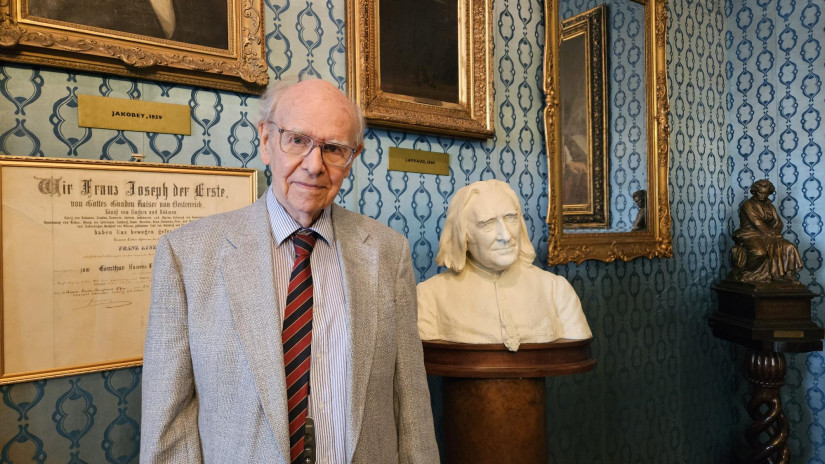Alan Walker at the Liszt Museum
14 May 2025
After having received his honory doctorate from the Ferenc Liszt Academy of Music, we had the privilege of welcoming Alan Walker, the world-renowned British-Canadian scholar, to our museum.
When asked about his experience with the Liszt Museum in the past, he said the following:
“Everyone here was so helpful and nice when I first came to Hungary. I used to sit at a table on the ground floor in the library and work. From the time the museum was open, until it was almost closed at the end of the day, I had manuscripts and papers and notepads on my table. And every hour or so, someone would come with a cup of tea and make it very, very pleasant for me. This might be my 20th or even my 25th visit. I have lost count. I love the building, and I love coming back.”

We also asked him about the importance of a museum, specifically a museum dedicated to Liszt. His thoughts:
“The prime function of a museum is to keep memories alive; this particular museum keeps the memory of Liszt alive, with displays of the composer’s living room, his manuscripts, photographs of his family, and the pianos on which he played. It is human nature to want to commemorate great artists and scientists, or artistic and scientific events. I cannot imagine a time when museums or statues will not exist. I like to use the phrase the ‘geography of biography’ to describe the biographer’s work, and it applies to Liszt and museums with peculiar force. While it’s possible to do your research from home, there is no substitute for going to the places about which one writes, visitng archives, examining manuscripts, and seeing the actual pianos the composer used. The moment you are in contact with these tangible, three dimensional objects, you are writing out of true experience and not reporting the experience of others.”
We are grateful for Professor Walker's thoughts, and we are looking forward to welcoming him back to our museum.



